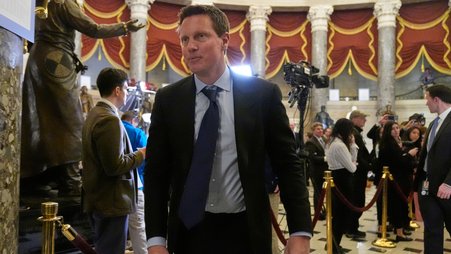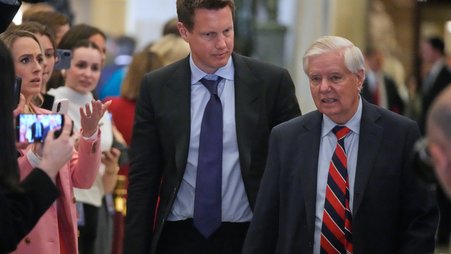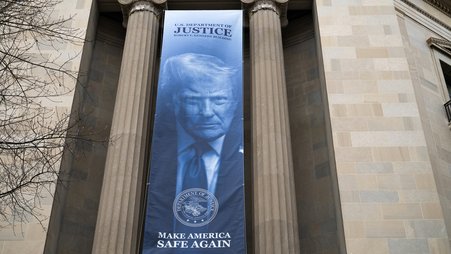It doesn’t take a law degree to see that President Donald Trump’s attacks on law firms and nonprofits could also do irreparable harm to press freedom.
Since January, Trump has strong-armed law firms and targeted nonprofits, launching salvos against institutions he sees as roadblocks on his path to greater political control.
To learn about what’s at stake, we spoke to legendary First Amendment lawyer Floyd Abrams; general counsel for The Intercept, David Bralow; and Albert Sellars partner Kendra Albert at an online webinar May 2.
Albert kicked off the conversation by explaining the “dramatic chilling effect” of Trump’s executive orders against law firms that represented his political opponents or made legal arguments he didn’t agree with.
“Journalists need lawyers,” they said. “If you cow the lawyers from being able to take clients who are oppositional to the government, it’s going to harm the press.”
Last month, Albert co-authored an amicus brief in opposition to Trump’s attacks against the law firm Perkins Coie. It was signed by 61 media organizations, and led by The Intercept and Freedom of the Press Foundation (FPF). Hours after the webinar, U.S. District Judge Beryl Howell struck down Trump’s order targeting Perkins Coie as unconstitutional.
As Bralow explained, there once was a time when small newsrooms could quickly and easily obtain pro bono legal support if they faced a First Amendment challenge, because there was an ecosystem “that was active and supportive for all these rights.” That ecosystem was already in shambles before Trump’s executive orders, he said.
“Trump’s order is just simply a frontal attack. Small news organizations simply cannot find the strong voices without the assurances that they have strong legal representation,” Bralow warned.
Abrams said that, compared to the present, the attacks on law firms he saw decades ago when he represented The New York Times in the Pentagon Papers era were “almost minor league.” Under former President Richard Nixon, for example, “There were real threats about the press” like Espionage Act prosecutions, he said, but “never anything like what we’re seeing today.”
“I can’t think of another public elected official that’s ever gone down this road,” he said of Trump.
While some law firms are challenging Trump in court, others aren’t. Abrams believes that, despite the risks, those capitulating to him should be counterattacking instead.
"This is not an effort to clean the legal landscape,” Abrams said of Trump’s actions. “It is to punish entities that he views as enemies.”
Albert is optimistic that Trump’s executive orders will continue to fail to withstand judicial scrutiny. “Judges, I think, have been receptive to the law firms’ arguments that these executive orders are unconstitutional,” Albert said.
Nonprofits, including some that are news organizations, also face significant risks. Trump has broadened the scope of his attacks to these institutions, threatening to revoke their tax-exempt statuses for taking positions or reporting stories he disagrees with.
“I don’t know how you can be a nonprofit that is trying to do right by its community, its employees, and the nation without having real significant concern right now for the sort of retaliation, the sort of the rhetoric that is coming out of the administration,” Bralow said.
He discussed how The Intercept, which is a nonprofit, has worked to “button up” and “Trump-proof” the organization. The Intercept is also helping others, including by relaunching the Press Freedom Defense Fund, which gives money to small newsrooms to address legal threats.
Abrams said that while law firms deserve a share of the criticism, we shouldn’t lose sight of who the villain is in this story. “One thing has to be clear: This is all the president’s fault,” Abrams said. “There is no equality of blame here.”





